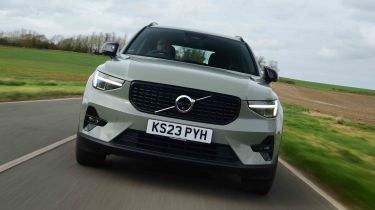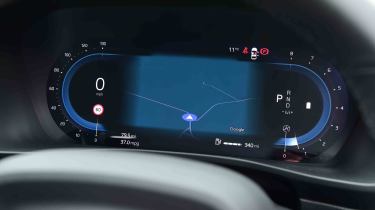Volvo XC40 - MPG, CO2 and running costs
With the PHEV and diesel versions discontinued, the average economy across the petrol only XC40 range has decreased

The Volvo XC40 engine line-up is made up of two petrol units that come with a modest level of mild-hybrid assistance to help boost fuel efficiency. It does this by adding a little bit of electric power to the engine when accelerating to reduce overall consumption, but it can’t drive the car using electric power alone like a traditional hybrid car, so it doesn’t have the fuel efficiency or low CO2 emissions of full hybrid or plug-in hybrid rivals. Stop-start is included to help boost efficiency in town, too.
There are matching fuel economy figures for both the B3 and B4 petrol units in the XC40 with a combined fuel economy figure of 42.1mpg, while the best that you can achieve will be affected by which trim level you choose, wheel size and, of course, how you drive.
|
Model |
MPG |
CO2 |
Insurance group |
|
XC40 B3 |
42.1mpg |
149g/km |
23 |
|
XC40 B4 |
42.1mpg |
149g/km |
26 |
Tax
The entry-level XC40 Core and the Plus model powered by the B3 engine both dip below the £40,000 threshold for the luxury car road tax supplement that’s payable in years two to six, so they offer decent savings over the rest of the range while still being generously equipped. Since the B3 and B4 petrol engines have hybrid assistance, this means there’s a £10 saving on annual road tax, too.
Company car taxation is high because of the petrol CO2 emissions the XC40’s powerplants make. The range starts in the 34 per cent bracket for the 2024/25 tax year and increases from there. If you’re a company car user who’s tempted by the XC40, then the all-electric EX40 is the obvious alternative to choose.
Insurance groups
Insurance groups for the XC40 range from 23 to 30, depending on trim level and engine power, with the B4 sitting two groups higher than the same car with the B3 unit.
Depreciation
Volvo is currently on the crest of a wave in terms of customer demand. When you also factor in the strong desirability within the premium SUV market, it's no surprise that the XC40 has strong residual values: between 52 and 54 per cent for mild-hybrid petrol models. The best is the B3 Core, while the worst is the B4 Ultra.
To get an accurate valuation on a specific model check out our valuation tool...









